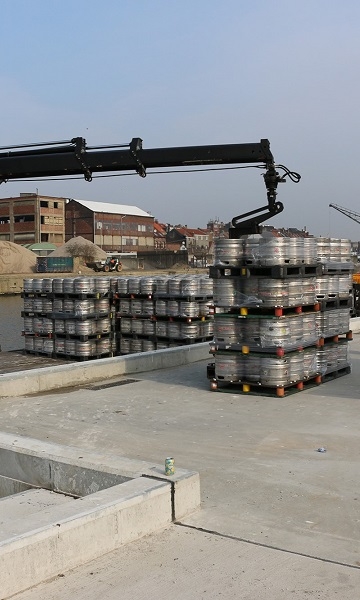A transshipment platform network along the canal is being studied by the Port of Brussels
That will make it possible to ensure the delivery of palletized goods closer to the end-user and thus to reduce the “last mile” costs (post-routing, transport between the last transshipment and the final destination), which remains generally by road. The longer this post-routing, the more economic profitability forces one to resort to high-capacity vehicles. By reducing this “last mile” distance, one can call on vehicles that are smaller, more ecological and better adapted to the city. Another advantage, these vehicles can be directly loaded from the boat, which is equipped with a crane.
The platforms network will have two hubs located at the Vergote Basin and the Basin of Biestebroeck. These hubs will allow the temporary storage of goods, as well as complementary logistic activities (grouping, repacking, etc.). They will accommodate routine consumable products, building materials, parcel distribution, and so on.
Between these hubs, various transshipment points will enable the goods to be unloaded closest to their final destination.
In addition, the Port is one of the partners of the European LAMILO (LAst Mile LOgistics) project, which has since September 2014 put an urban distribution service in place, organized by the CityDepot Company thanks to the installations of the Port of Brussels, which is enjoying rapid development. Other operators have been established meanwhile. An additional proof of the Port’s crucial role for achieving sustainable mobility in Brussels.
